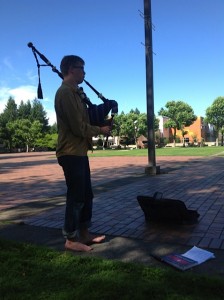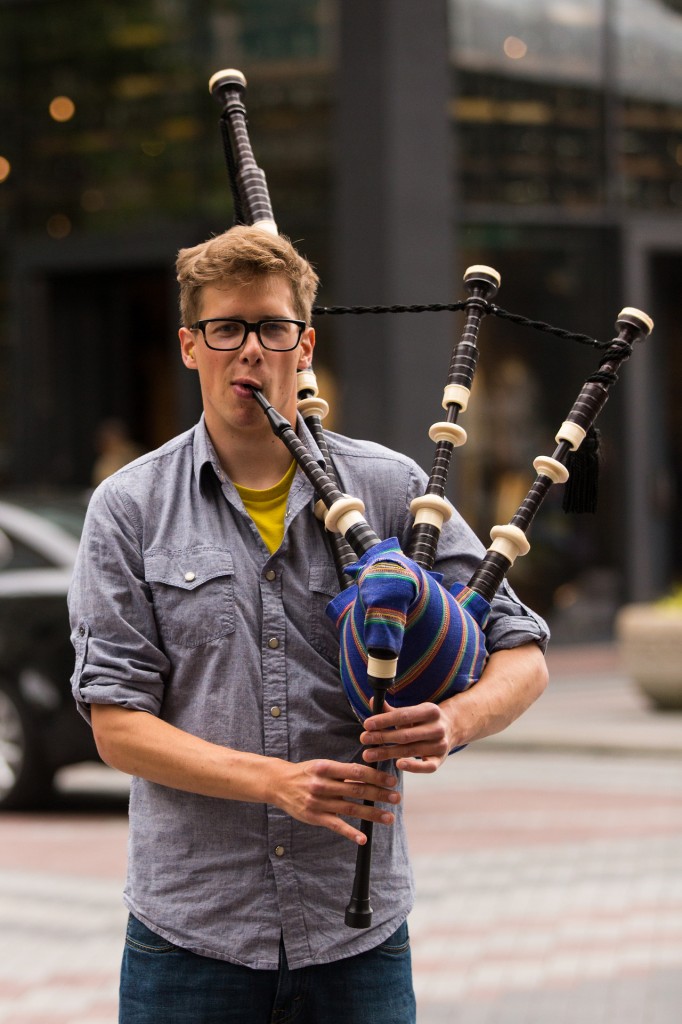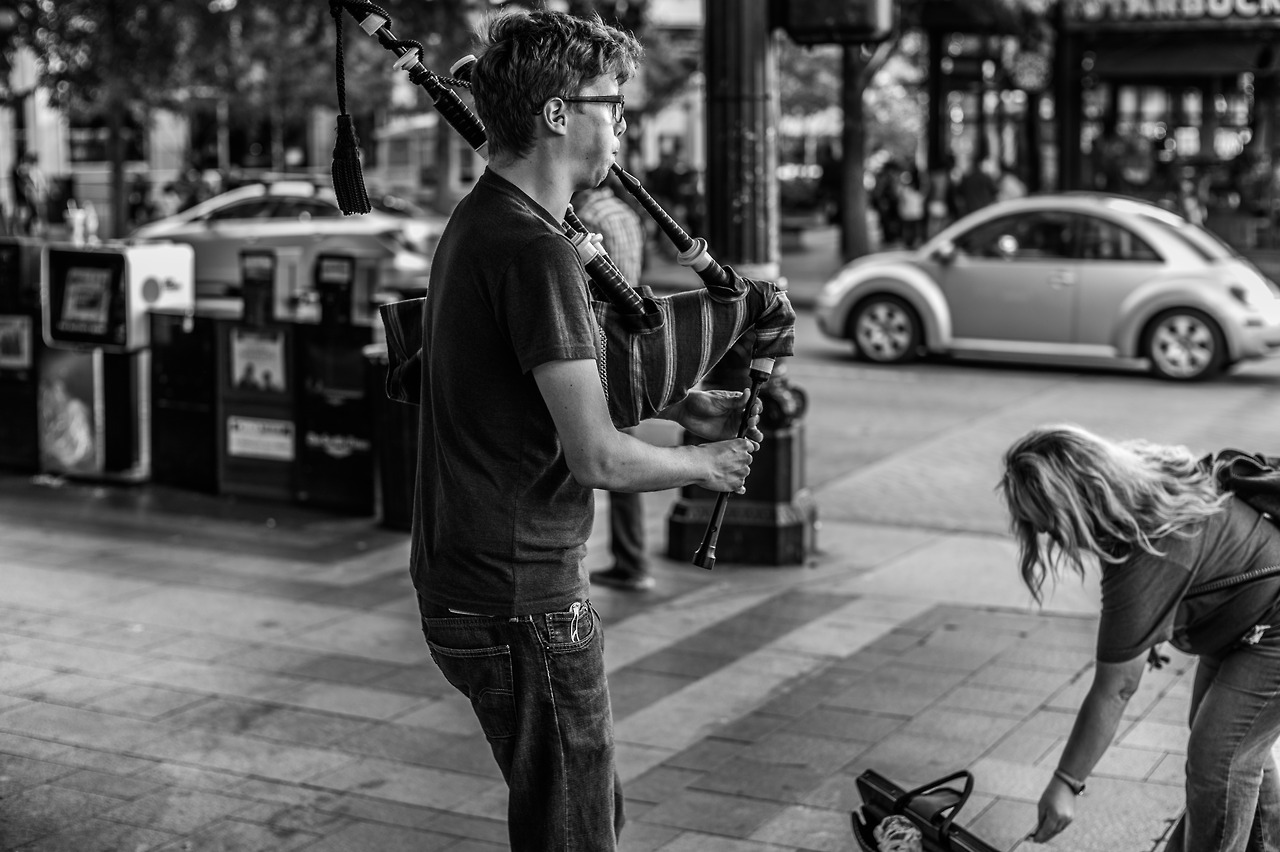Editor’s note: The sound of bagpipes, even from considerable distance, penetrates all other sounds and brings one straight to attention. This is what happened recently when the moaning drones and piercing chanter notes got us out on Red Square within seconds. There we met Martin Brendecke ’14, current student and an accomplished piper.
Martin was born in Tucson, Arizona but grew up in Kirkland, Washington. The son of a performing folk musician, Martin’s world was filled with music, at home and wherever there was a folk festival or traditional music gathering around the Northwest.
When he was eight years old, the Brendecke family went to the Enumclaw Highland Games where Martin’s mother was performing with her band “The Hot Lattes.” That was when Martin’s fascination with all things Scottish began. On the way home, he asked for a practice chanter and a kilt.
At first, Martin explained, it wasn’t so much the pipes that captured his fancy, “it was the whole aesthetic, the kilts and plaids, and the hose and flashes [stockings and knee garters]… I always knew I was Scottish and it just hit me that this was my culture.”
In addition to the early musical influences, Martin began developing an historian’s mind starting, he recalls, at age three when he was introduced to a series of computer programs focusing on ancient Egypt, Greece and Rome. Falling in love with his Scottish heritage was a logical step. Martin began practice chanter lessons and by age nine, he was entering, and often winning, competitions. By his 10th birthday, Martin had mastered 10 tunes and was rewarded with the set of bagpipes he still plays.
“Bagpipes have transformative power,” Martin explained. “The sound makes me feel a weirdness, a magical quality, a sort of fuzziness.”
Martin’s father, microbiologist turned computer programmer, has family ties to Bavaria, a region in the south of Germany, and the family visited often. When Martin was a teenager, the Brendecke family moved to Saarland, Germany where Martin attended school, reveled in European history and art history, became fluent in German and for two consecutive summers, attended the Burg Breuberg piping camp, put on by the Bagpiping Association of Germany (BAG). He also attended the College of Piping in Glasgow, Scotland. In both places, Martin rubbed elbows with some of the world’s best pipers and became, himself, an accomplished player, not only the familiar marches and reels, but of classical piping, called piobaireachd and simply pronounced pibroch.
At Evergreen, Martin is passionately immersed in sustainable agriculture and fluidly draws connections between agriculture, culture, history and, yes, his music. After graduation next June, he plans a year of travel in Brazil.
If you live in Olympia, Tacoma or Seattle and hear the sound of bagpipes on the streets, be sure to investigate. It may be Martin playing his breath-taking music in exchange for a bit of funding for that post-graduation trip. Grinning, he attests that busking is a lot easier than a regular job and he is frequently well rewarded for his efforts.




